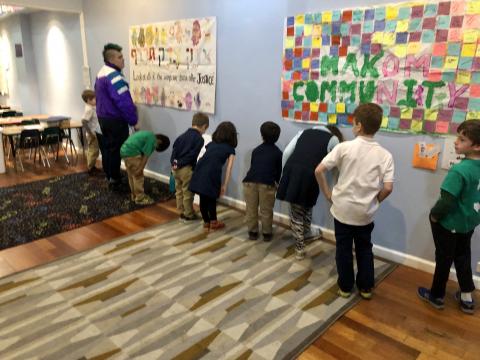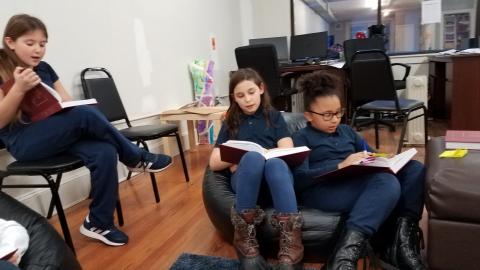
Tefilah isn’t just prayer, music, and movement, it is also a conversation! We started a new unit where we are unpacking the ways in which Tefilah can be a conversation, and what those conversations can look like. This week we are looking at the part of Amidah that talks about our avot v‘imahot, aka our forefathers and mothers. Let’s zoom in on Avraham! God is described as being “Magen Avraham” (Genesis 15:1). That translates to “the shield of Avraham”. What does that actually mean? This past week we looked at the story of Avraham and God, when God told Avraham that God would protect him and give him lots of descendants! Take a look and see what your smart kiddos had to say about the model of God as a shield.
If you needed protecting, who would you ask to protect you?
- I would ask everyone.
- I would ask myself.
- I would ask someone I trust.
What does it mean for God to be Avraham’s shield?
- God can protect Avraham from getting hurt.
- God will stand between Avraham and his enemies.
- God will comfort Avraham.
- Because God has superpowers.
What makes this conversation Tefilah?
- It’s a conversation between God and Avraham, and when we do Tefilah it’s a conversation between us and God.
- Tefilah helps you focus.
- Tefilah helps remind you that God may or may not be protecting you.
- Avraham is asking questions.
- Avraham is thankful, or actually kind of confused.
Today, when Jewish people say the opening paragraph of the Amidah, the end it with a bracha (blessing) that calls God Magen Avraham, the Shield of Avraham. Why do we find this this a helpful name/title for God?
- God was protector of Avraham, and He is our ancestor.
- If Avraham hadn’t been protected, we wouldn’t be here.
Why is it helpful in this conversation to remind God who our ancestors are before we ask to be protected?
- We are honoring them (our ancestors).
- Wait, we’re reminding God who OUR ancestors are?!
- We are asking God for love, and to protect us because God protected them, it’s only fair.
As we continue to explore Tefilah, we will look at the ways our relationship with Tefilah can reflect the conversations between God and our ancestors. Stay tuned next week, we are going to zoom in on Sarah!

